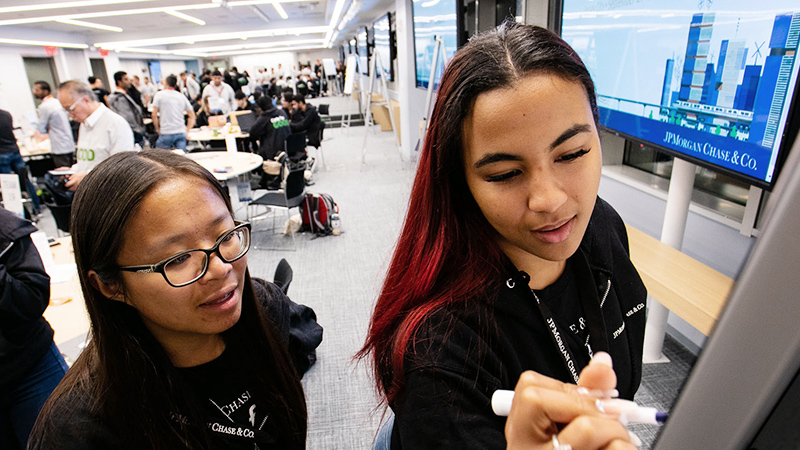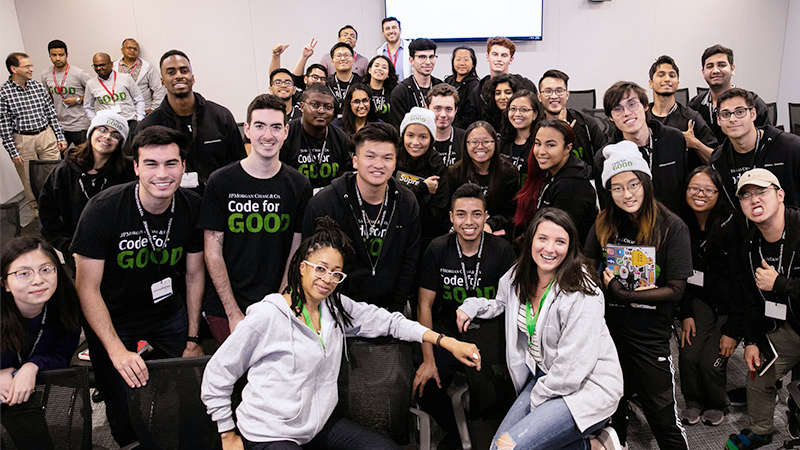Making a Dream a Reality
While the hackathon was over after just 24 hours, the work on Global Nomad's app was just getting started. Code for Good—the JPMorgan Chase group that hosted the hackathon—had generated a bunch of recommendations. Now it was the job of Force for Good—a group of dedicated JPMorgan Chase programmers and engineers—to make the student coders' ideas a reality.
Hasnain Aziz, an Executive Director at JPMorgan Chase, volunteered to lead the 12-member Force for Good team tasked with transforming the hackathon's ideas into a fully-functioning and sustainable app for Global Nomads Group. The project lasted eight months, Aziz says. The coders started by dedicating part of their regular work week to it—which is standard procedure for Force for Good programs. However, as it progressed, they also began working in their spare time, in between regular work and, often, in evenings or weekends. In other words, it became a labor of love.
“It was a joyful experience," Aziz recalls. “And it was a lot of fun to play with technological tools that we may not get to play with at work."
There were plenty of interesting wrinkles to iron out. For instance, Global Nomads wanted to expand their user base from teenagers to include young adults up to 25 years of age, because they found that college students were also eager to reach out to younger people around the world.
But with that age range, Global Nomads needed to set up the app so that people around the same age would be talking to each other, as opposed to a 15-year-old and 25-year-old chatting. The nonprofit also wanted other safety features—including automatic recording of all video conversations and engagement features like discussion prompts that pop up during conversations. Making that happen was the job of the Force for Good team.
Christine Goussous, Global Nomads regional director in Jordan, estimates that the work provided by JPMorgan Chase probably saved the nonprofit $80,000 to $120,000. More importantly, the improved technology enabled more students to sign up. And, in turn, the increased user base enabled Global Nomads Group to attract more funding partners.
Ever since the app went live, Goussous says, teenagers and young adults around the world have benefited, just as everyone hoped. In the words of a teen user from Tanzania, “Seat at the Table is the perfect platform for me to connect to teenagers around the world, sharing different experiences and the brilliant ideas brewing in our minds."





